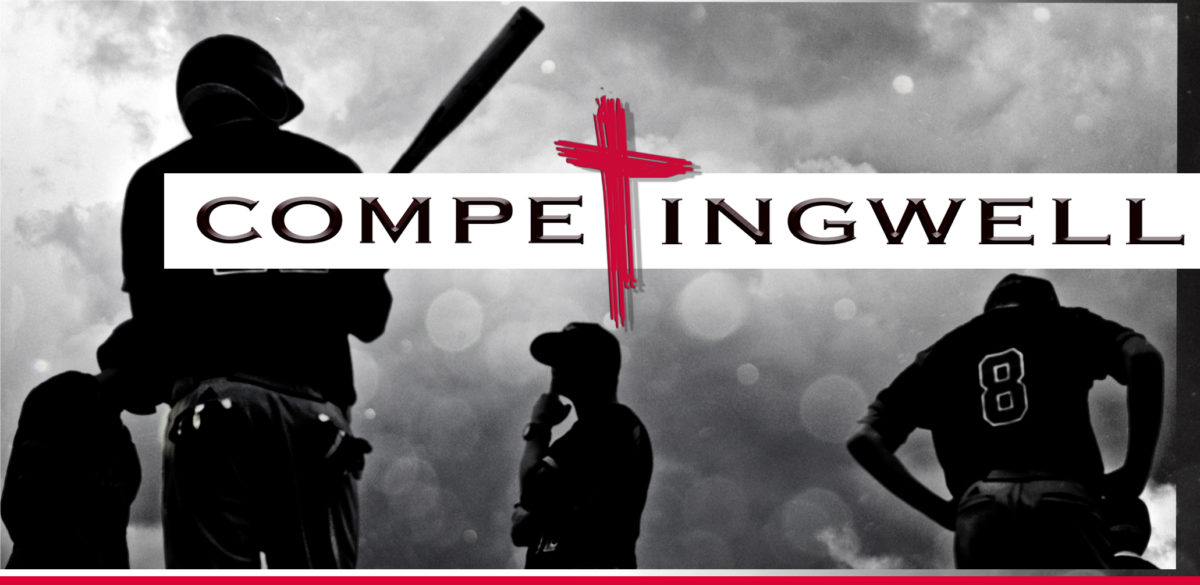When all things have been given to you as a gift – your creation, talent, desires, salvation and so forth… – the only fitting response is to say Thank You. But a simple verbal acknowledgment will not do for such a great gift, for what we are really talking about here is the very the gift of our own life. So the thanksgiving that we seek to offer is with our entire being. Therefore, we offer ourselves – soul and body – back to God (Roman 12:1), and in so doing we truly become who we are meant to be. The Christian athlete makes this offering by seeking to become the best s/he can be at their given sport. What’s important here is the “how” of this offering.
For the offering to be “holy and pleasing to God” it is to be offered in faith. I use the term “faith” here as a catch-all phrase, for in “faith” we offer in belief, trust, obedience, love and hope. “Faith” is the “how” of our offering. It is man’s essential “M.O.” (modus operandi) – the righteous shall live by faith. Our vocation as a “human being” is/was simply to offer back to God that which he had given to us and in so doing transform all of life into communion with God. “Faith” enables man live into this vocation.
We are intended to live the life of “thanksgiving”. The Greek word for thanksgiving is “eucharist”. Many of the early church fathers described us as “eucharistic beings”. Which is to say, that our very fulfillment, our purpose, as “man” consist in this thanksgiving (eucharistic) offering to God. Schmemann put it this way, “we know that real life is ‘eucharist’, a movement of love and adoration toward God, the movement in which alone the meaning and the value of all that exist can be revealed and fulfilled.” Again, the problem is/was that we failed to be the “eucharist’ being God made us to be, rather than offering back to God that which he had given to us we just consumed it and used it solely to our own ends. But in Christ, the eucharist life that was once lost has been restored. He lived the perfect life of thanksgiving, offering back to God in love that which God gave to Him. Through “faith” we become participants in His offering. You see, “faith” makes possible our ability to become once again eucharistic beings – individuals that offer back to God all that God has given to us and in so doing transform all of life into life in God.
Faith is the essential “how” in offering the world and ourselves to God. Christ’s offering is the only acceptable offering; all others fall short in obedience and love. This is why it is not the “why” that ultimately matters, but the “how”! Our motives are not perfect, they are mixed and inept – sinful. Alone our offering is ever and always insufficient. Through faith we offer not merely ourselves, but Christ, for he has offered “all that is to be offered” to God. Here, our offering becomes joined to His all-sufficient one and is made “holy and pleasing” unto God.
The truth, or reality, is that that when we seek to “play for Him” we have that lingering tendency to play for ourselves. When we seek to remember Him, we more times than not find ourselves forgetting Him. When we think we have given Him our best, we discover we actually have more to offer. St. Paul described it this way “For I do not understand my own actions. For I do not do what I want, but I do the very thing I hate… For I have the desire to do what is right, but not the ability to carry it out … Wretched man that I am! Who will deliver me from this body of death? Thanks be to God through Jesus Christ our Lord!” (Rom 7: 15,18, 24, 25). Pure motives elude us, thus the need for Jesus Christ. An essential ingredient of faith is “humble reliance”. Kierkegaard once summed it up in this fashion, in relation to God we always find ourselves in the wrong. Faith simultaneously seeks to offer our best, that is, it seeks to offer God lives of perfect obedience and pure love, all the while knowing that we are truly unable to do that. Nevertheless, we must never rest in this inability –our sinfulness- where we take God’s forgiveness for granted; no, we must continually seek with all our might to live that sinless life before God. Here, “faith” may best be described as “striving in humble admission.” For instance, we seek (strive) to love another with the love of God in full recognition (humble admission) that we cannot love the other with the love God, so in acknowledging our inability we rest in God’s forgiveness and seek His grace to help our love toward the other be experienced as God’s love (we rely upon grace, in our reliance upon grace). So the opposite of sin then is not virtue, as we so often want to tend towards, rather the opposite of sin is faith.
So the Christian athlete, through faith offers up to God all it takes to become the best s/he can be at their sport as a response to the gifts of God experienced in Christ Jesus. In so doing, that which is offered – the sacrifice, preparation, practice and play – becomes, to use Hippoltus’ (187-197 AD) term, “eucharistized”, that is, made a gift that is holy and pleasing to God. In exchange for these gifts – sacrifices of praise and thanksgiving – God gives the gift of Himself. In this way, or shall I say, through this faith offering, the “things” of earth are transformed into life in God, communion with God.
